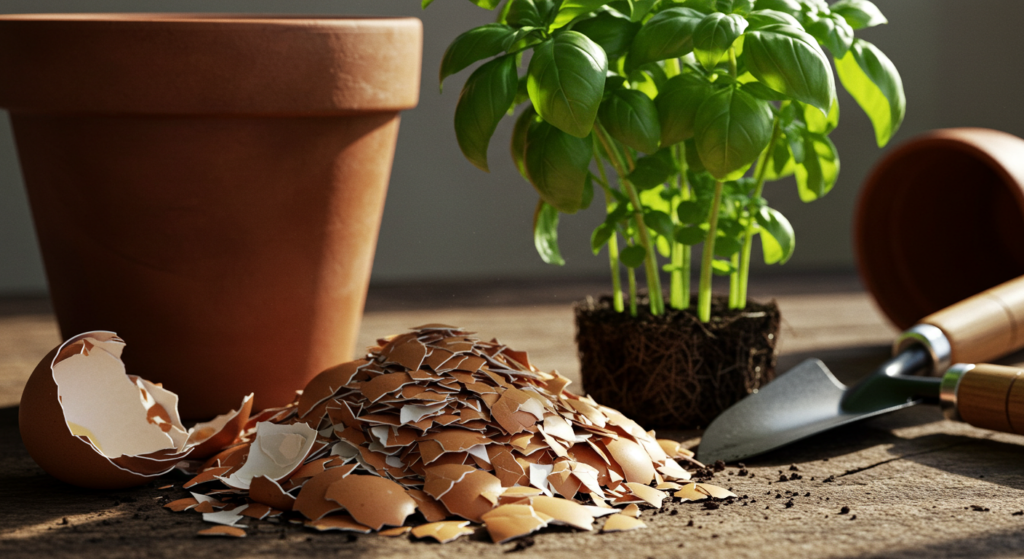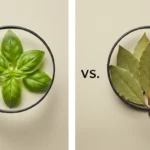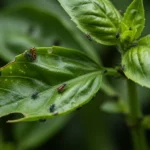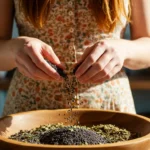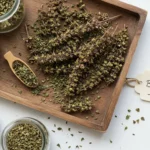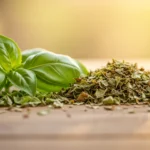Eight years ago, knees deep in soil, I, Kalsoom Imran, watched in disbelief as my basil, usually vibrant, started to look sickly. A neighbor, with a knowing smile, suggested something I’d never considered: crushed eggshells. Could something so simple really be the answer? That moment sparked a journey into the question, Are eggshells good for basil plants?, and I’m sharing what I’ve learned.
Understanding the Potential of Eggshells for Basil
Have you ever found yourself staring at a pile of used eggshells, wondering if there’s a better place for them than the trash? I know I have! As a gardener, I’m always looking for ways to be more sustainable and resourceful. One of the most common bits of gardening wisdom that gets passed around is the idea that eggshells are beneficial for your plants.
We’ve all heard it, right? They’re supposed to be some kind of magic bullet, a free and natural way to boost your garden. But the question I’ve always had, and maybe you have too, is: are eggshells good for basil specifically? That’s what I’m diving into today.
The Science Behind Eggshells and Basil Growth
Eggshells as a Source of Calcium for Basil Plants
Let’s get down to the nitty-gritty. What exactly are eggshells made of? Well, the primary component is calcium carbonate. That’s a fancy way of saying they’re packed with calcium. Now, why is calcium so important for plants, especially for our beloved basil? Calcium plays a vital role in plant health, particularly in the development of strong cell walls.
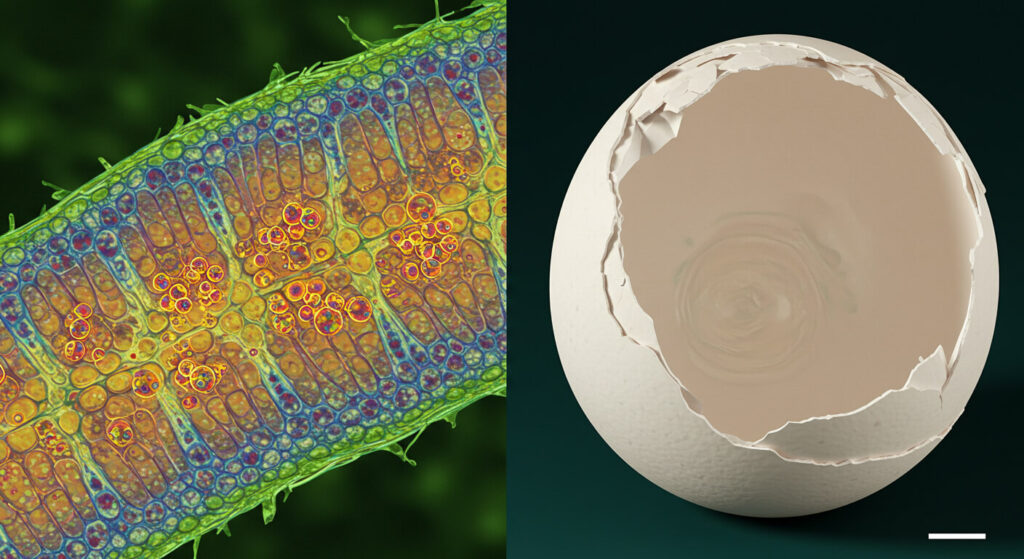
Think of it like the building blocks of a plant. Without enough calcium, basil plants can struggle to grow strong and healthy. This is why the idea of using eggshells for basil seems so appealing. It’s a readily available source of something they need. The calcium in eggshells benefits basil by promoting healthy cell growth.
Do Eggshells Provide Other Nutrients for Basil?
While calcium is the star of the show when it comes to eggshells, they do contain trace amounts of other minerals. However, it’s important to understand that eggshells are not a complete fertilizer. The primary benefit you’re getting is that calcium.
It’s also worth noting that eggshells aren’t a quick-release fertilizer. The calcium is bound in the shell and needs to break down over time to become available to the plant. So, while they can contribute to overall plant health, don’t expect an immediate growth spurt just by adding a few eggshells in basil soil.
How to Use Eggshells for Basil Plants
Preparing Eggshells for Use in Your Basil Garden
Before you start tossing eggshells into your basil pots, there’s a bit of prep work involved. First, it’s crucial to clean and dry your eggshells. You want to remove any remaining egg white or yolk to prevent them from attracting pests or causing unwanted odors.
Once they’re clean and dry, you have a few options for how to prepare them. You can crush them into smaller pieces, or you can grind them into a fine powder using a blender or food processor. Some gardeners even bake the eggshells in the oven for a short time to sterilize them further. This helps to kill any lingering bacteria. The method you choose depends on your preference and how you plan to use them. The key is to make sure they’re broken down enough for the nutrients to become available. Proper preparation is key when using eggshells in basil garden.
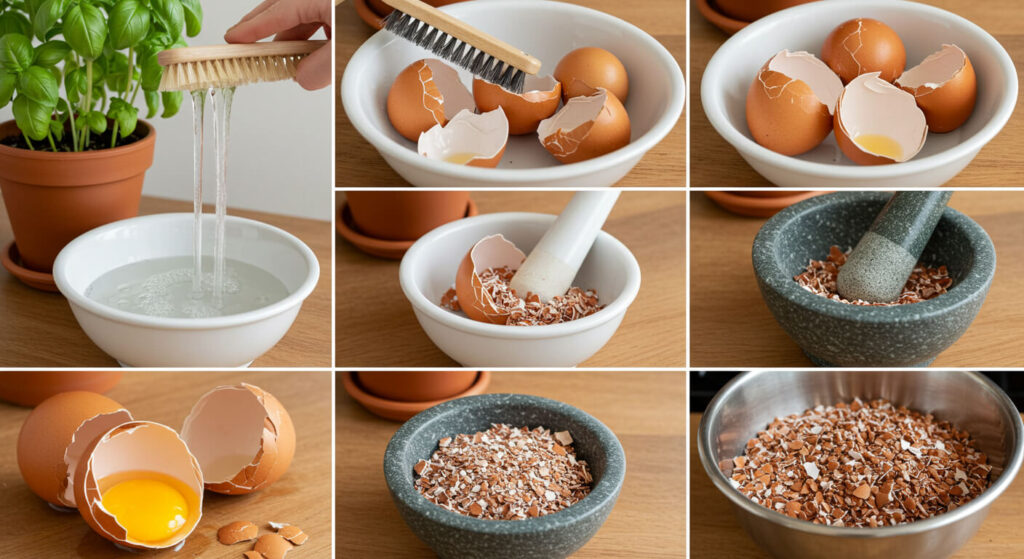
Methods of Applying Eggshells to Basil Plants
Now that your eggshells are prepped, let’s talk about how to actually use them in your basil garden. One popular method is to incorporate crushed eggshells directly into the soil. When you’re planting or repotting your basil, simply mix the crushed eggshells into the potting mix. This allows the calcium to slowly release into the soil as the eggshells decompose.
Another option is to use eggshells as a top dressing. Simply sprinkle the crushed eggshells around the base of your basil plants. This method works well for established plants. You can also make eggshell tea. To do this, place crushed eggshells in a jar of water and let it sit for a few days. Then, use the water to water your basil plants. This allows some of the calcium to leach into the water, making it more readily available to your plants. There are several ways to apply crushed eggshells basil to your plants.
Using Eggshells in Basil Potting Mix
Adding eggshells in basil potting mix is a proactive way to ensure your basil gets a steady supply of calcium right from the start. Whether you’re starting new basil plants or repotting existing ones, mixing crushed or powdered eggshells into the potting mix is a simple and effective method.
The eggshells will slowly break down over time, releasing calcium into the soil as your basil grows. This is a particularly good technique for container gardening, where plants rely entirely on the nutrients you provide.
Eggshells and Basil: Addressing Common Concerns
Do Eggshells Really Improve Basil Growth?
Okay, let’s address the elephant in the room. Do eggshells improve basil growth significantly? The truth is, the evidence is mixed. Some gardeners swear by them, while others see little to no difference. The effectiveness of eggshells can vary depending on several factors, including the existing soil conditions.
If your soil is already rich in calcium, adding eggshells might not make a noticeable difference. It’s also important to remember that eggshells are not a substitute for a balanced fertilizer. They primarily provide calcium, and basil plants need a variety of other nutrients to thrive. While they can be a helpful addition, don’t expect them to work miracles. The impact of eggshells and basil growth is not always guaranteed.
Can Eggshells Help with Blossom End Rot in Basil?
Blossom end rot is a common problem that can affect many plants, including basil. It’s characterized by a dark, sunken spot on the bottom of the fruit or flower. Blossom end rot is often caused by a calcium deficiency, so it’s natural to wonder if eggshells can help.
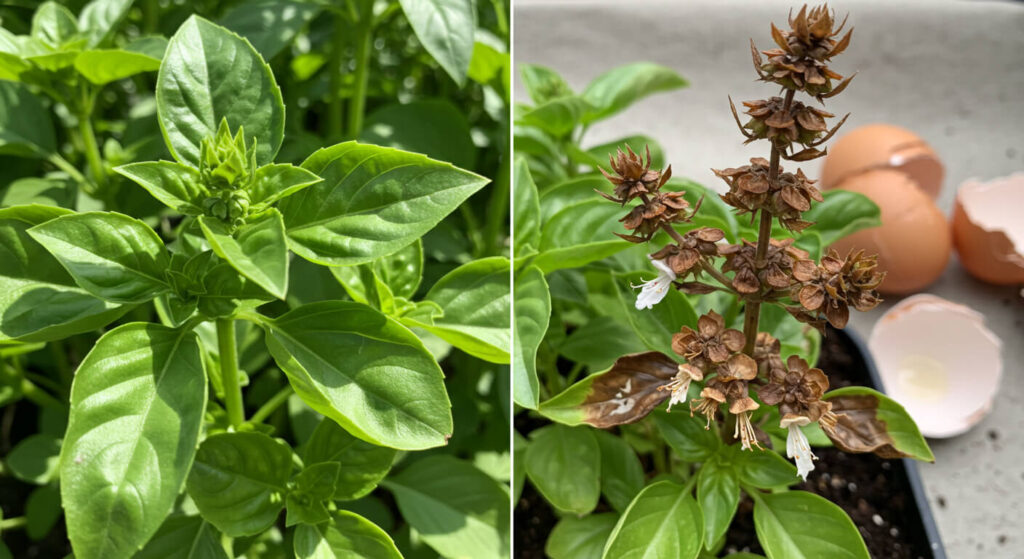
While eggshells can contribute to calcium levels in the soil, they are not a quick fix for blossom end rot. The calcium needs to be readily available to the plant, and the slow release from eggshells might not be enough to correct a severe deficiency. Other factors, such as inconsistent watering, can also contribute to blossom end rot. So, while eggshells for healthy basil can be beneficial, they’re not a guaranteed solution for this issue.
Are Eggshells Beneficial for Basil Seedlings?
What about young basil plants? Are eggshells for basil seedlings a good idea? The answer is yes, but with a few caveats. Young seedlings are delicate, and you need to be careful not to overwhelm them.
If you’re using eggshells for seedlings, it’s crucial to use finely crushed or powdered eggshells. Large pieces of eggshell might not break down quickly enough and could potentially interfere with root development. Gently incorporate the finely crushed eggshells into the soil when you’re transplanting your seedlings. This will provide a slow and steady source of calcium as they grow. It’s also important to remember that seedlings need a balanced fertilizer, not just calcium.
The Pros and Cons of Using Eggshells for Basil
Benefits of Using Eggshells for Basil
Let’s recap the potential benefits of using eggshells for basil. First and foremost, they provide a natural source of calcium, which is essential for healthy plant growth. They also act as a soil amendment, improving soil structure and drainage.
Using eggshells is an eco-friendly way to recycle kitchen waste and reduce your environmental footprint. Plus, they’re a cost-effective way to provide calcium to your plants. If you’re looking for a natural and sustainable approach to gardening, eggshells as plant food for basil are a great option. The eggshells benefits basil are many, especially if you’re looking for a natural approach.
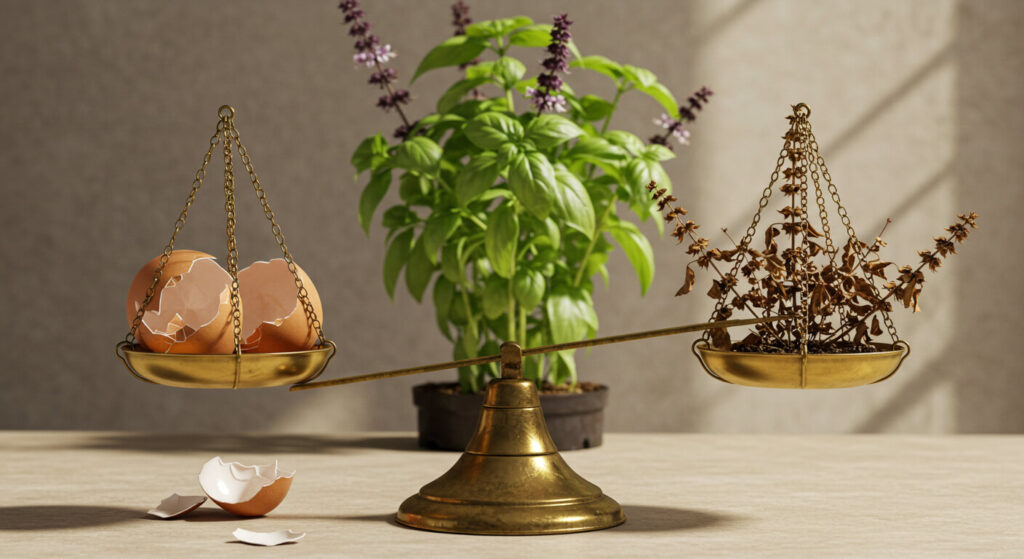
Potential Drawbacks of Using Eggshells for Basil
Despite the benefits, there are also some drawbacks to using eggshells. The biggest one is the slow release of nutrients. Eggshells don’t break down quickly, so the calcium isn’t immediately available to your plants. They’re also not a complete fertilizer, so you’ll still need to provide other essential nutrients.
Over-reliance on eggshells can also lead to nutrient imbalances in the soil. It’s important to use them as part of a comprehensive fertilization strategy, not as the sole source of nutrients. It’s crucial to understand that eggshells for basil nutrients are limited.
Conclusion: Are Eggshells a Good Choice for Your Basil?
Final Thoughts on Using Eggshells for Basil Plants
So, are eggshells good for basil? The answer, like most things in gardening, is it depends. They can be a helpful addition to your basil care routine, providing a slow-release source of calcium and improving soil structure. However, they’re not a magic bullet and shouldn’t be relied upon as the sole source of nutrients.
The key is to experiment, observe your plants, and see what works best for you. Gardening is a journey of learning and discovery, and sometimes the best lessons come from trying things out for yourself. The basil plant eggshells relationship is a nuanced one, and it’s worth exploring.
Natural Fertilizer for Basil: Eggshells as a Supplement
In conclusion, eggshells can be a good supplement to your basil plants, particularly for providing calcium. They’re a natural, eco-friendly, and cost-effective way to give your basil a little extra boost. However, they should be used as part of a balanced approach to plant care, not as a sole source of fertilizer.
Think of natural fertilizer for basil eggshells as a helpful addition to your gardening toolkit, not a replacement for other essential nutrients. Remember, do eggshells help basil? Yes, they can, but they’re most effective when used in combination with other good gardening practices. The basil plant care with eggshells can be a rewarding experience when done right.
